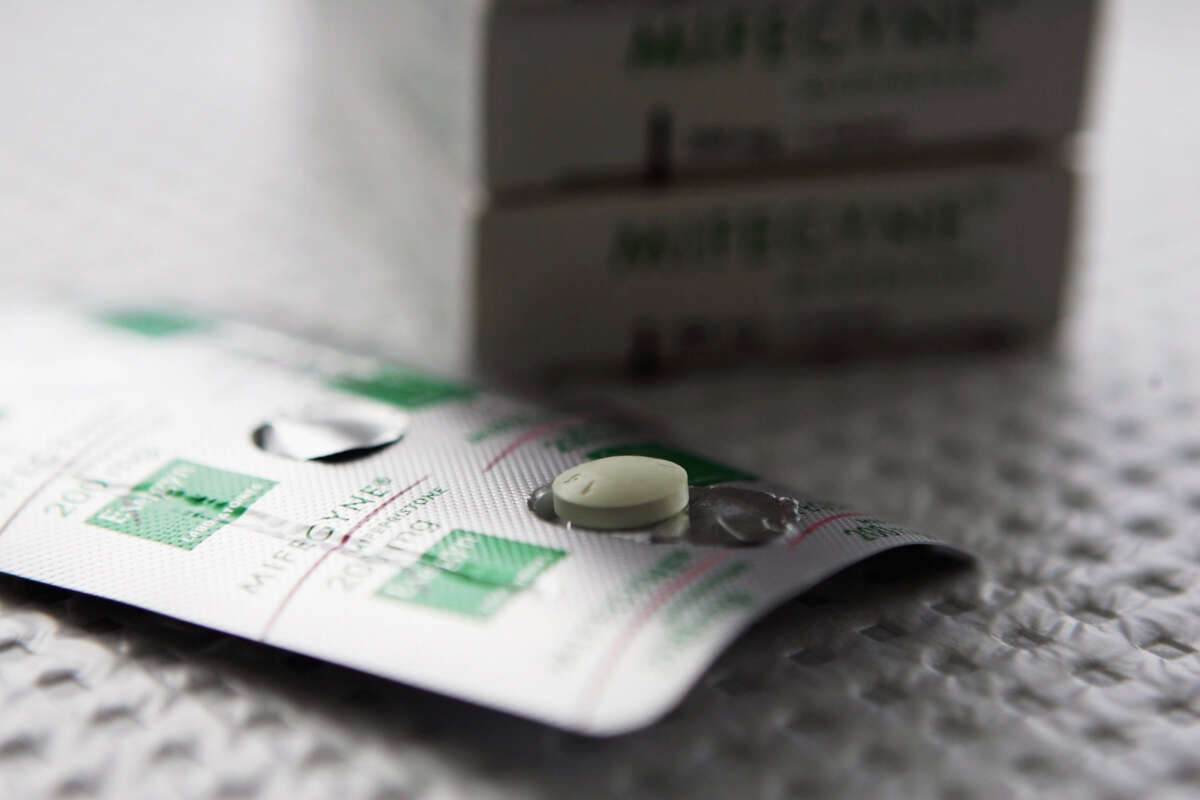The federal Food and Drug Administration (FDA) finalized a rule on Tuesday that will allow qualifying pharmacies to offer abortion medication to patients.
The rule makes such medication available by prescription at pharmacies across the country, including large chain stores and mail-order companies. However, state rules on abortion medication will still apply — and in about half the states, abortion bans or restrictions will likely make it illegal to implement the new FDA rule.
The rule change was partially initiated last year, when the Biden administration announced that it would not enforce a requirement for people to pick up abortion pills in person — in most cases, either at a clinic or from a doctor. The change on Tuesday formally updates that order, changing the labeling of abortion medication like mifepristone to allow pharmacies to dispense the medication following a certification process.
Prior to the change on Tuesday and before President Joe Biden’s executive order, the FDA had only allowed abortion medication to be dispensed — and in some cases, administered — at specialty offices and clinics.
Though the FDA previously insisted that these restrictions were necessary for safety reasons, medical organizations have noted for decades that abortion medication is safe and effective for people to take on their own, without clinical supervision.
The FDA’s announcement was lauded by the American College of Obstetricians and Gynecologists.
“Although the FDA’s announcement today will not solve access issues for every person seeking abortion care, it will allow more patients who need mifepristone for medication abortion additional options to secure this vital drug,” the organization said in a statement.
Abortion-inducing medication is currently used in more than half of pregnancy terminations in the U.S. There has been a higher demand for such medication since the Supreme Court’s decision last year to overturn abortion rights protections that were established in the 1973 Roe v. Wade decision.
Despite the FDA’s move this week, obstacles to increasing access to the medication remain. Although the process for a pharmacy to become certified to dispense mifepristone is not overly burdensome, some smaller pharmacies may be unwilling to spend the time or resources to meet the regulatory requirements. They may also face social or political ramifications in their communities if they decide to fill prescriptions for abortion medication.
It’s also unclear whether larger pharmacies will opt to make the pills available. A spokesperson for Walgreens told The New York Times that the company was reviewing the agency’s action and would “continue to enable our pharmacists to dispense medications consistent with federal and state law.”
Restrictions are still in place in several states across the country, and may disallow the dispensing of abortion medication at pharmacies, in spite of the FDA’s new standard. Eighteen states require a clinician to be physically present when abortion medication is being administered, for example, while 29 states require the medication to be administered by physicians, according to the Guttmacher Institute.
Join us in defending the truth before it’s too late
The future of independent journalism is uncertain, and the consequences of losing it are too grave to ignore. To ensure Truthout remains safe, strong, and free, we need to raise $46,000 in the next 7 days. Every dollar raised goes directly toward the costs of producing news you can trust.
Please give what you can — because by supporting us with a tax-deductible donation, you’re not just preserving a source of news, you’re helping to safeguard what’s left of our democracy.
